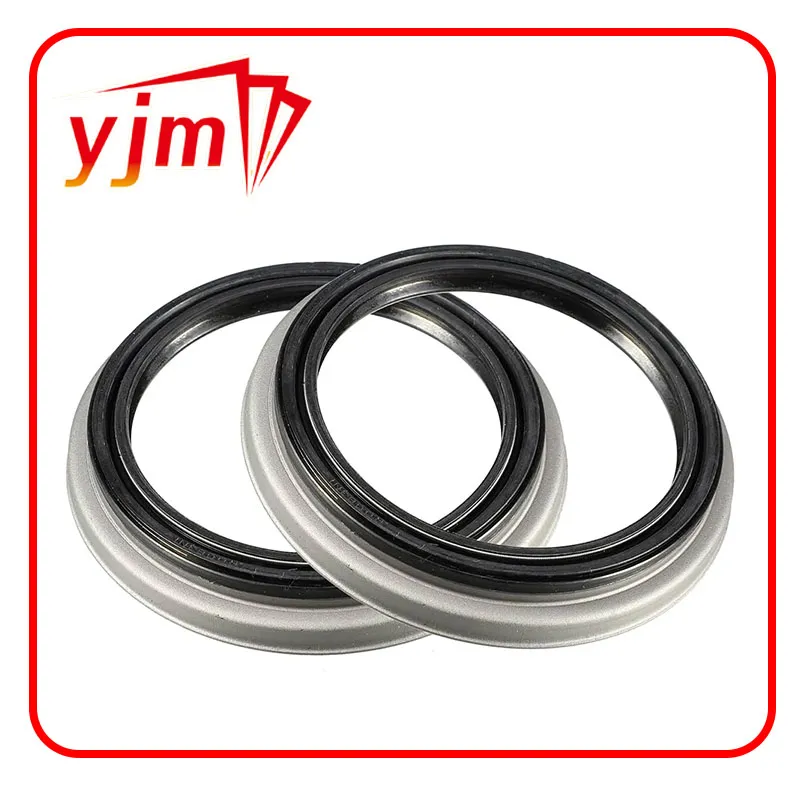High-Quality Rubber Oil Seals | Durable and Reliable Sealing Solutions
The Essential Role of Rubber Oil Seals in Machinery
In the realm of mechanical engineering and manufacturing, the reliability and efficiency of machines are paramount. One often overlooked yet vital component that plays a critical role in ensuring the proper functioning of machinery is the rubber oil seal. These small but significant devices are designed to prevent the leakage of oil and other fluids, protecting the integrity of mechanical systems across various industries.
Rubber oil seals, also known as rotary seals or shaft seals, are typically installed between static and dynamic components of machinery. They are made from durable rubber compounds, which provide excellent resistance to various factors, including temperature fluctuations, pressure variations, and exposure to different fluids. The primary function of these seals is to keep lubricants contained within machinery, preventing any loss that could lead to operational inefficiencies or failures.
One of the main advantages of rubber oil seals is their ability to withstand harsh operating conditions. For instance, in automotive applications, rubber oil seals are essential in engines, transmissions, and differentials, where they guard against oil leaks and contamination. The presence of oil not only lubricates moving parts but also helps dissipate heat, thereby enhancing the lifespan of the equipment. When rubber oil seals effectively contain the oil, they contribute significantly to the overall performance and longevity of the vehicle.
rubber oil seal

The design of rubber oil seals is a critical aspect of their functionality. They typically consist of several components, including a sealing lip, a body, and a spring. The sealing lip makes direct contact with the rotating shaft, providing a tight closure that effectively prevents fluid leakage. The spring assists in maintaining contact between the sealing lip and the shaft, compensating for wear over time. This construction allows the seals to perform effectively, even under varying conditions.
In addition to their mechanical applications, rubber oil seals are also widely used in the industrial sector. Machinery in factories and processing plants often relies on these seals to maintain operational efficiency. Whether it’s hydraulic systems, pumps, or compressors, rubber oil seals play an essential role in keeping fluids contained and ensuring that machinery operates smoothly. Any failure of these seals can lead to significant downtime and costly repairs, emphasizing their importance in industrial applications.
Furthermore, the versatility of rubber materials has allowed for the development of specialized oil seals that can cater to specific requirements. Factors such as temperature range, chemical compatibility, and pressure ratings are considered in the design of rubber oil seals. This customization enables industries to select seals that best fit their operational needs, ensuring optimal performance and reliability.
In conclusion, rubber oil seals are crucial components that contribute significantly to the efficiency and longevity of various machinery, from automotive applications to industrial equipment. Their ability to prevent fluid leakage and withstand demanding conditions makes them indispensable in maintaining seamless operations. As technology continues to advance, the development of rubber oil seal materials and designs will further enhance their performance, securing the reliability of modern mechanical systems. Investing in high-quality rubber oil seals is, therefore, a wise decision for any industry that prioritizes operational efficiency and equipment longevity.
-
Simplifying Oil Changes: A Comprehensive Guide to Oil Drain Plugs and Their Variants
News Aug.04,2025
-
Mastering Oil Drain Maintenance: Solutions for Stripped, Worn, and Upgraded Oil Plugs
News Aug.04,2025
-
Fixing Oil Pan Plug Issues: Leaks, Stripped Nuts, and the Right Replacement Solutions
News Aug.04,2025
-
Everything You Need to Know About Oil Drain Plugs: Sizes, Fixes, and Upgrades
News Aug.04,2025
-
Choosing the Right Oil Drain Plug: A Guide to Sizes, Materials, and Drain Innovations
News Aug.04,2025
-
A Complete Guide to Automotive Drain Plugs: Types, Problems, and Innovative Solutions
News Aug.04,2025
-
The Ultimate Guide to Car Repair Kits: Tools and Essentials Every Driver Should Own
News Aug.01,2025
Products categories















